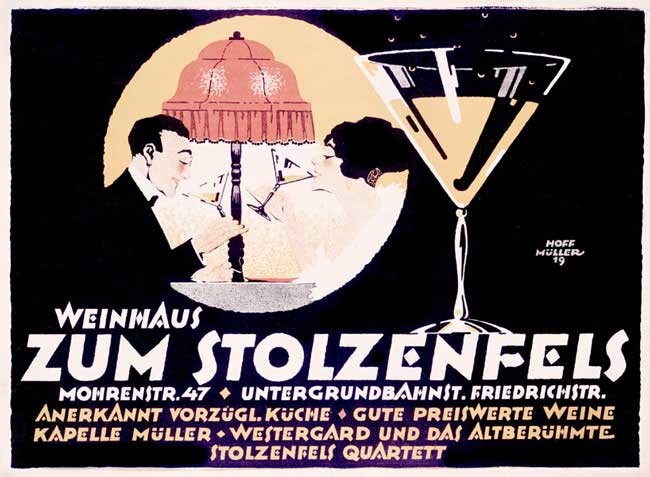
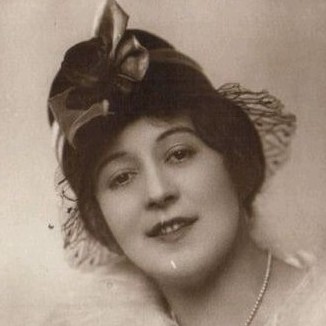
Trude Hesterberg
Gertrud Johanna Dorothea Helene Hesterberg was born in Berlin on May 2nd 1892.
She was first taught to sing by her opera-singer aunt and began her formal classical training at the Stern Conservatory in Berlin in August 1911. She made her stage debut in a production by Moliere in 1912 and, also in that year, her first silent film Im Goldenen Käfig.
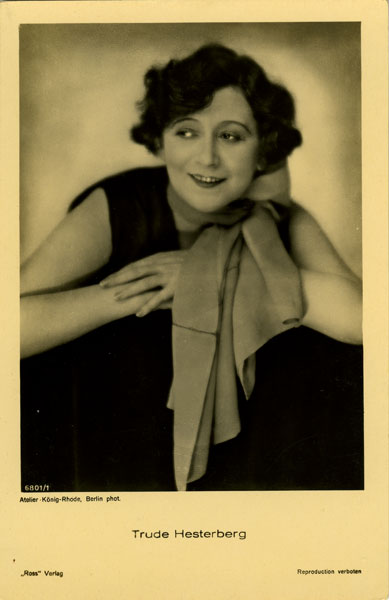
(image: virtual-history.com)
Over the next few years she made many appearances on theatre and cabaret stages in Berlin, including The Wintergarten and Schall und Rauch performing works by Kurt Tucholsky, Friedrich Hollaender and Erich Kästner.
Her film career continued flourishing to the extent that in September 1921 she opened her own cabaret Wilde Bühne (Wild Stage) in the basement of the Theater De Westens. It was the first truly political-literary cabaret, and discovered some of the very best artists of the time, including Wilhelm Bendow, Walter Mehring and, for six nights only in January 1922, a young Bertolt Brecht.
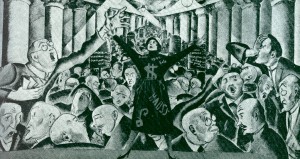
By May 1922, Hesterberg was forced to take a break from the venue due to exhaustion and in 1923 the extraordinary hyper-inflation of the period forced it to close.
Seven more silent movie appearances followed between 1925 and 1928, and Hesterberg was also now a regular feature at the Kadeko and in Erik Charrel revues at The Großenschaulspielhaus.
It is thought that she was an early consideration for the lead role in The Blue Angel, before it was given to Marlene Dietrich.
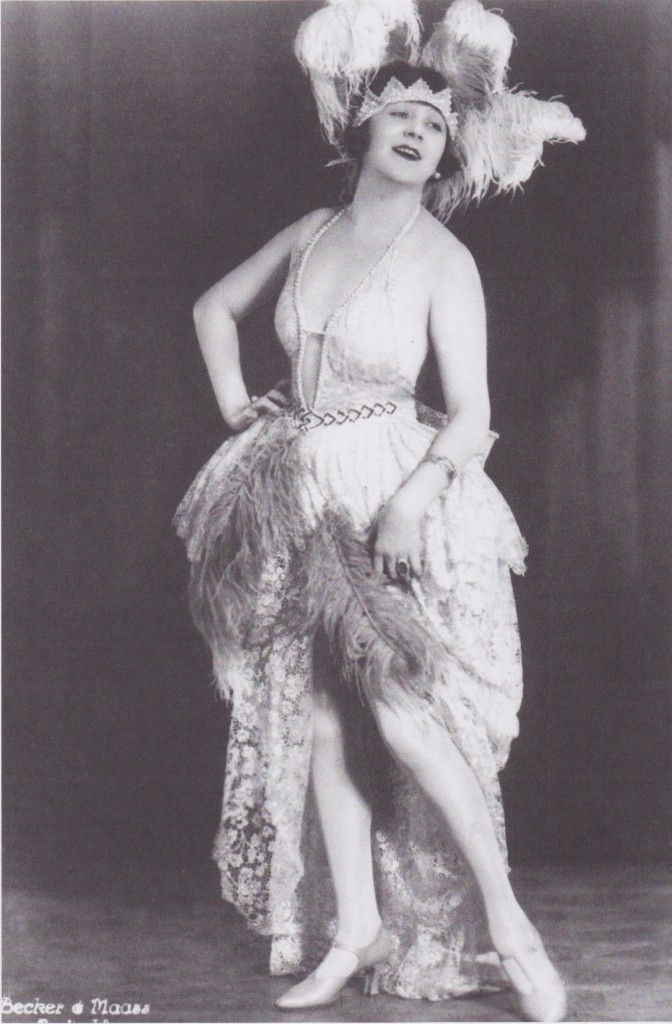
(image: Ullstein. Becker und Maass)
The sudden and dramatic changes of the early 1930s often compelled non-jewish artists into dramatic compromises.
In January 1933, Trude Hesterberg joined the Nazi Party and The Fighting League For German Culture and became a member of an SS support group.
”As a woman and an artist I naturally have been influenced by all tendencies of the times, but I never became a politician. I have always instinctively considered my art as a megaphone of the popular opinions of the day. Out of this sense of artistic duty, I became a member of the Nazi party and the Fighting League.”
Her sudden political change of heart was viewed as opportunism, at best, by the authorities and she was placed under a great deal of scrutiny over the coming months.
By November of 1933, she had opened a new cabaret venue in Berlin, Musenschaukel (The Muses Swing). Its aim was to provide ”a popular cabaret which contains nothing foreign … only numbers that are anchored in our nature and whose music is derived from folk songs.” This may have appeased the Nazi authorities but proved commercially disastrous and the venue closed in February 1934 after just two productions.
In March 1934 Trude Hesterberg and her troupe returned to The Kadeko where she would continue to perform throughout the Nazi era, whilst also concentrating on her film career.
She appeared in 89 films between 1917 and 1964 and in 1962 was one of the first recipients of the ‘Filmband in Gold’ for outstanding commitment to German Film.
She died of heart disease in Munich on August 31st 1967 , aged 75.
She has a star on the Cabaret Walk of Fame in Mainz.
